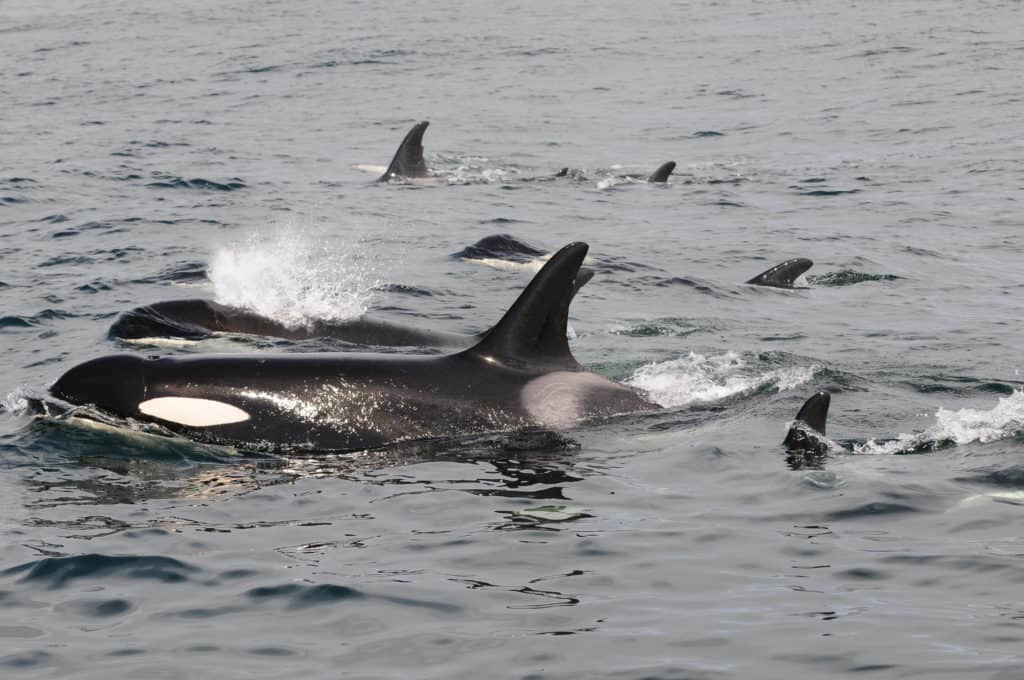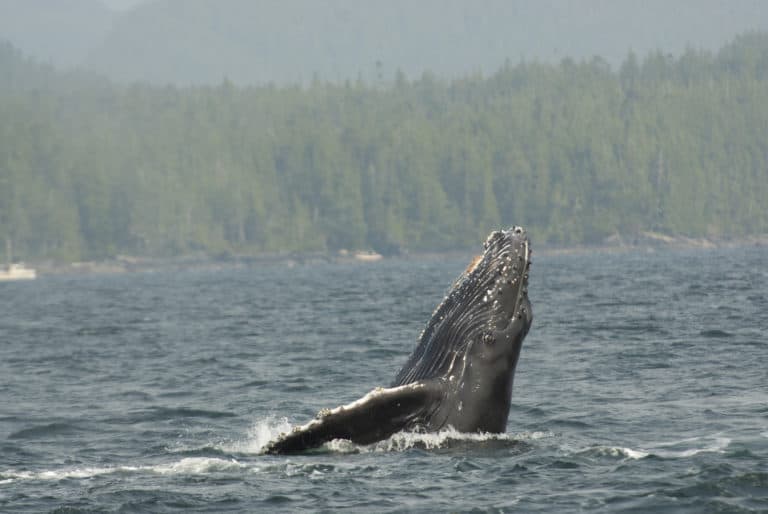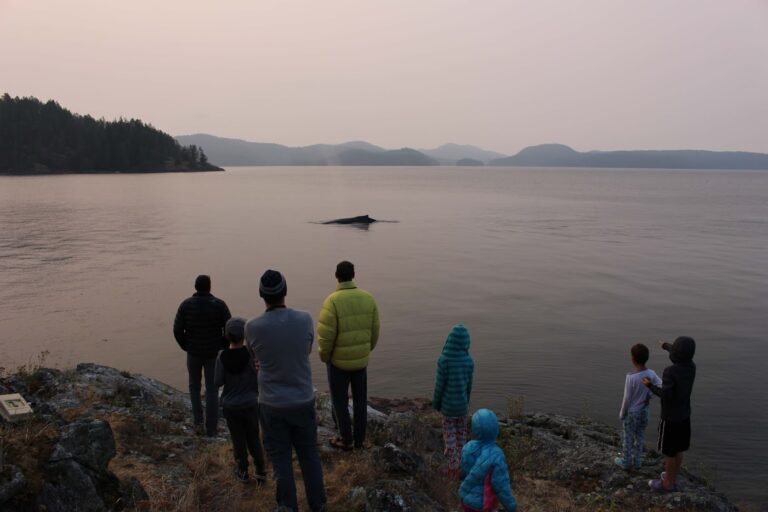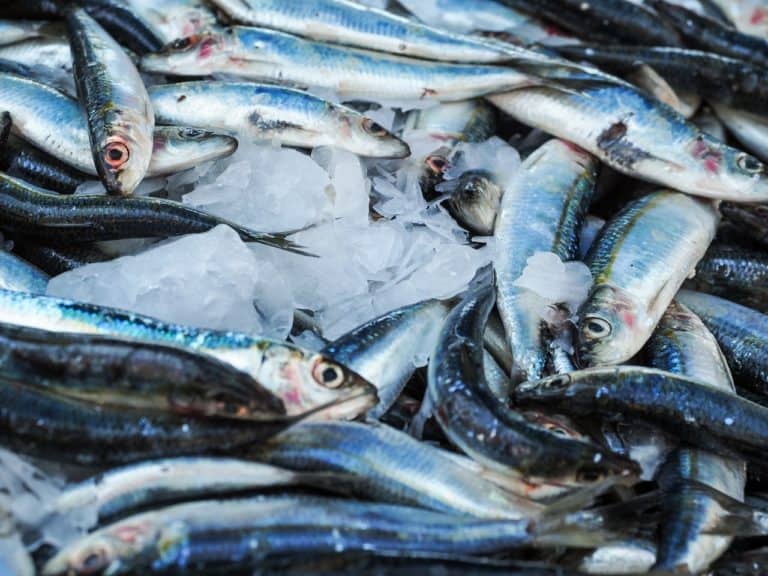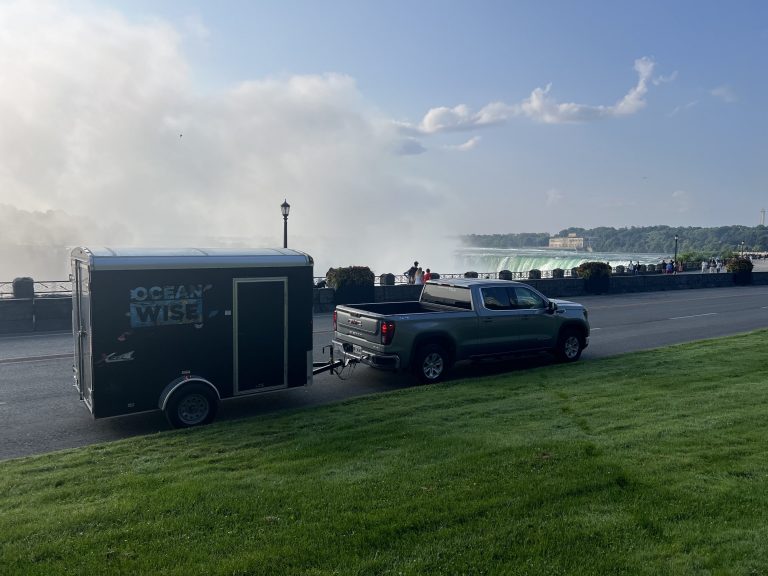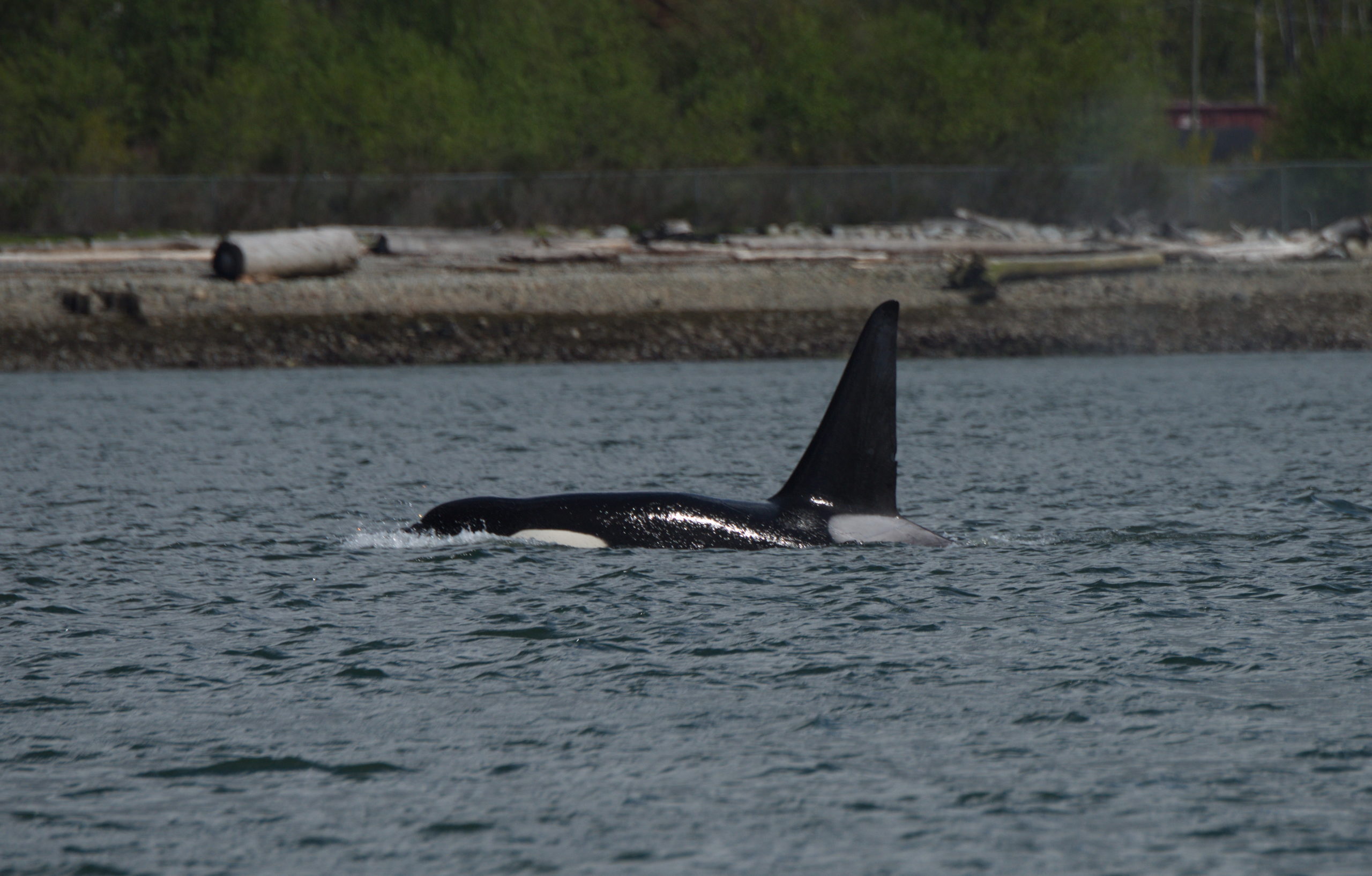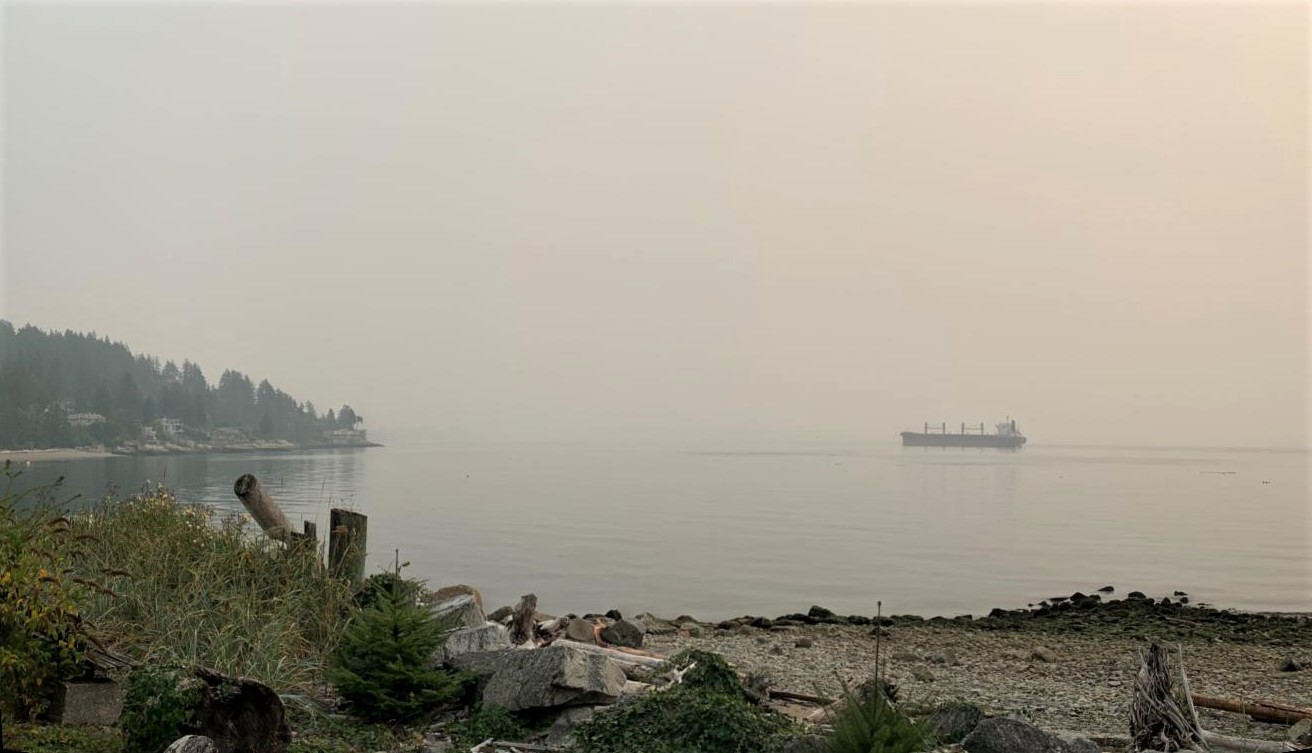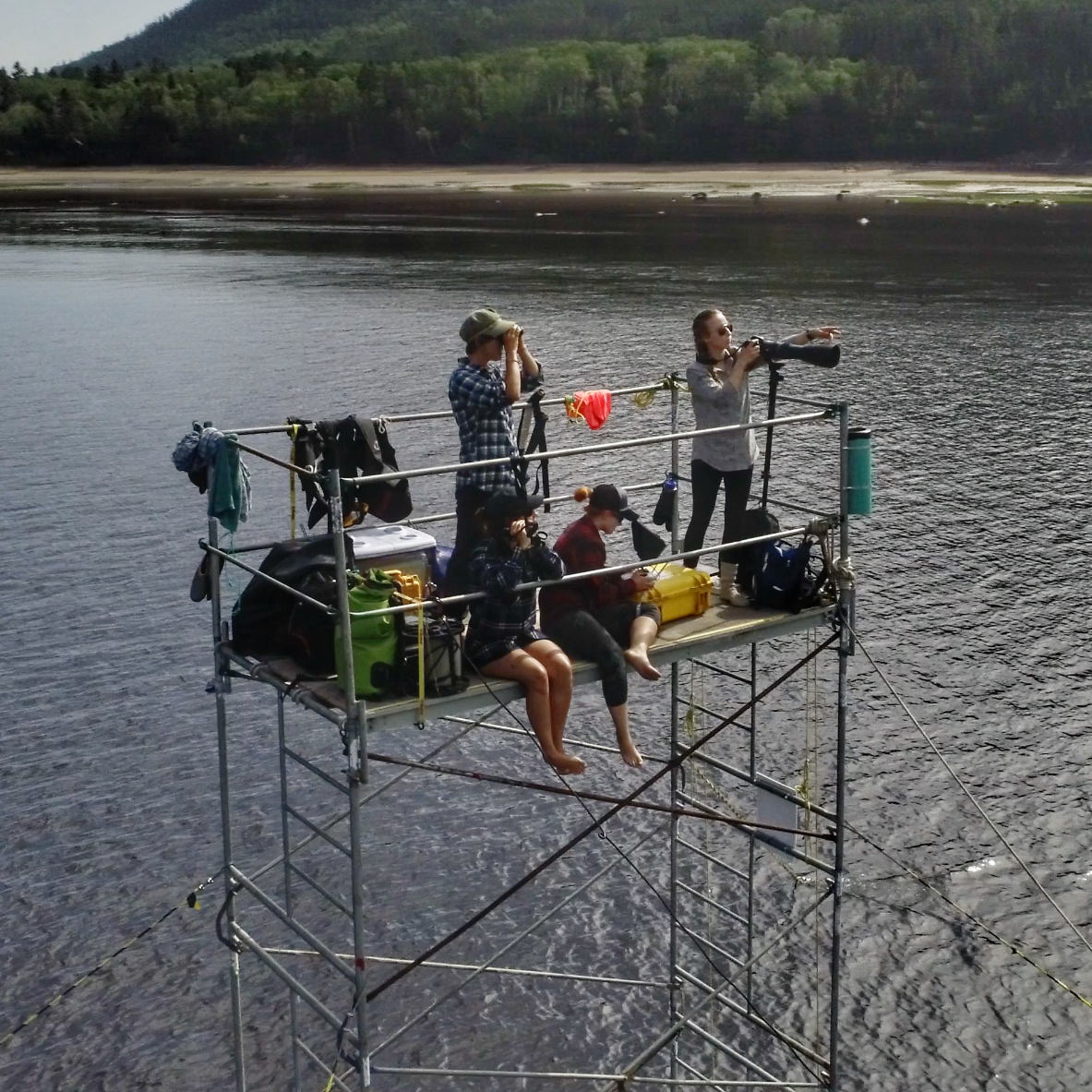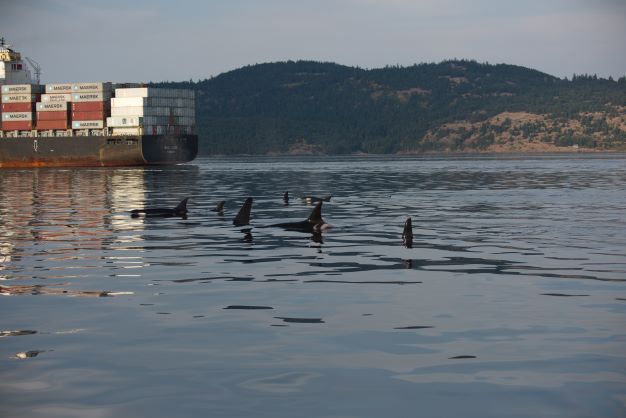
Oil Spill Triggers Conservation Groups to Seek the Public’s Help with Whale Sightings
As the oil spill from the fishing boat Aleutian Isle reaches Canadian waters, conservation groups and the Department of Fisheries and Oceans call on public to help by reporting whale sightings.
Scientists at Ocean Wise, The Whale Museum, the Vancouver Aquarium Marine Mammal Rescue Centre, the Marine Education and Research Society, and the Department of Fisheries and Oceans (DFO) are putting out a call for intensified efforts to report whale sightings along the Pacific Coast this weekend. Whales are not able to detect or avoid oil slicks and are therefore at high risk of inhaling and ingesting spill hydrocarbons. Exposure to oil and its toxic vapours can cause skin irritations, internal injuries, and even death. There are currently only 73 Southern Resident Killer Whales left, and according to the federal government, pollutants are one of the greatest threats to the species.
At the time the vessel sank off the west coast of San Juan Island, 60 out of the 73 members of this endangered population were reported just south of the spill. Thanks to the efforts of ecotourism operators, researchers, and citizen scientists in Washington State, the US authorities were able to track the location of the whales and confirm that they have not been in contact with the slick. As this oil spill continues to spread, knowing the location of the whales will be critical for directing mitigation efforts.
“As the oil spill enters Canadian waters we need as much information as we can gather on the whereabouts of whales and other marine life in the area,” says Chloe Robinson, PhD, Senior Manager of Conservation Impact at Ocean Wise. “The Ocean Wise WhaleReport App enables anyone with a smartphone to report the location of whales in real-time, helping to direct mitigation efforts that can help save whales.”
The WhaleReport Alert System (WRAS) broadcasts pertinent details of real-time whale sightings reported through the WhaleReport app. This alerts authorities such as the Coast Guard, Transport Canada, and DFO to the locations of endangered and threatened whales. If whales are in danger of swimming through the spill, trained authorities will take measures to divert the whales.
The WRAS also alerts shipmasters of large commercial vessels so that they can implement measures to reduce their risk of disturbing or striking whales.
Anyone can be a whale reporter and help in the efforts to protect this endangered population. Even if you’re not on the water, you can still see whales and report sightings from shore. Download the free WhaleReport App on iOS or android today to help protect the whales.
“It important to know where marine mammals are in real time in the event there is a petroleum discharge related to the San Juan sunken vessel event,” states DFO marine mammal expert Paul Cottrell. “This will ensure our team can respond in real time to mitigate exposure. The Ocean Wise WhaleReport app, along with the DFO whale tracking network of hydrophones, is of vital importance in knowing where the whales are.” The DFO Marine Mammal Protection Unit is updating confirmed Canadian whale detections and sightings to the American National Ocean and Atmospheric Administration (NOAA) regularly to help with their efforts.
If a member of the public encounters a marine mammal that is oiled, stranded, or otherwise in distress in Canadian waters, they should immediately call the 24-hour toll-free Marine Mammal Incident Reporting Hotline at 1-800-465-4336 or use VHF Channel 16 (Coast Guard). Oiled birds should be reported to the SPCA Wildlife Support Line at 1-855-622-7722. In American waters, any sightings of oiled animals can be reported to the Washington Department of Fish and Wildlife at 1-800-22-BIRDS.
Ocean Wise spokesperson Chloe Robinson, PhD, Senior Manager of Conservation Impact is available to speak with media about the oil spill and the importance of reporting whale sightings, especially during critical events like this.
| If you would like to arrange a media interview please contact [email protected]. |
Posted August 19, 2022 by Nic Schulz
